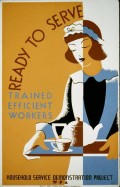Part-Time and Flex Time Dos and Don’ts
Introduction
When parents switch to a flexible schedule or flex-time schedule, they face many issues parents downshifting to a part-time schedule face. What are the dos and don’ts of working part-time or a flexible schedule?
What You Need to Do When Shifting to Part Time or Flex-Time
Do get to know the company’s policies on part time work and flex-time before you propose changing your schedule. Some companies limit such arrangements to jobs that can be done half-time or with flexible schedules, such as office work or sales support. However, many jobs, especially those supporting mission critical systems or the shop floor, cannot be done on a flexible schedule.
Research whether your job can be done part-time, or if going part-time or flex-time requires changing job positions within the organization. Likewise, flexible schedules or shifting to part time is often restricted to employees with seniority, while requests by new hires are rejected.
Talk with your supervisor before going part-time as to what you can realistically do in your new schedule. It is not possible to do everything you used to do in 40 hours in 35 hours unless the quality has gone down or there were actually that many hours of meetings you could cancel.
Understand your benefit’s plan implications. You will be paying more for medical, dental and other benefits as a percentage of your salary unless the benefits are literally a percentage of your income regardless of the income. If you are shifting to part time work, you could lose your health benefits altogether.
Remember that work-life balance doesn’t mean juggling an insane schedule without any margin, whether for work or personal reasons. When you’ve decided to downshift or alter your work schedule for family reasons or health reasons, recognize that you’ve decreased the time and effort poured into career to focus on other areas. While you can focus on family, career, your health or your relationships, you cannot do everything or focus one all areas at once. Superman and Superwoman are myths, and the women who “have it all” are usually paying people to do a lot of things so they don’t have to.
Do schedule time to connect with your spouse when working a flexible schedule. Two spouses on alternate schedules in particular must set up times that they can reconnect and have time together, or their family risks falling apart.

What Not to Do When Working Part Time or Flexible Schedules
Don’t forget to draw a hard line as to your new schedule. If you don’t draw a hard line like leaving at 4 PM or no weekends anymore, then people won’t get used to your new schedule. They will come to expect you to work your old hours or simply more hours than you are scheduled to work.
If you aren’t careful, you could end up paid for 30 hours a week while working 35 hours a week, because people assume you’re as available as you were when assigned to work 40 hours a week.
If you shift to a flexible schedule, don't let them queue you in on other days or shifts so you're constantly in the loop but never actually stop working.
When you leave work, stop working for your employer. Many companies assume that with flex-time, they can ask you fill in on weekends, holidays and evenings as the need arises. Unless you agreed to that as part of the job, such as working in tech support, don’t agree to join in evening conference calls, weekend system checks or “just this once” application testing to meet a deadline. You run the risk of occasional odd hours becoming a regular occurrence as well as unpaid overtime. Furthermore, endlessly checking in means you’re checking out of the rest of your life.
Don't expect to get the same type of salary increases that you would if you were full time. The only exception to this rule is those that are paid hourly regardless of their schedule or work in positions where part time work is the norm. In the latter case, you’ll get paid the same rate per hour.
Don’t change your schedule without recognizing the impact on your career. Management is not supposed to use part time status against you, but it will be hard to do a lot of the extra work that gets recognized when you are working a part time schedule. Too many companies reward those who put in 10 to 20 hours of overtime, work weekends or travel significantly over those who don’t, and shifting to part-time moves you out of that strata. Instead of getting angry, remember why you are doing this. You can shift back to a heavy work load later, if you choose, unless health reasons don’t permit it.








